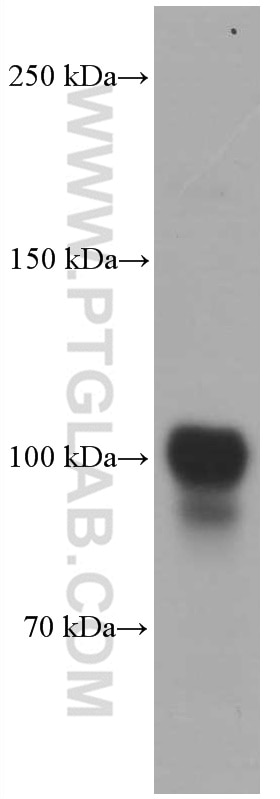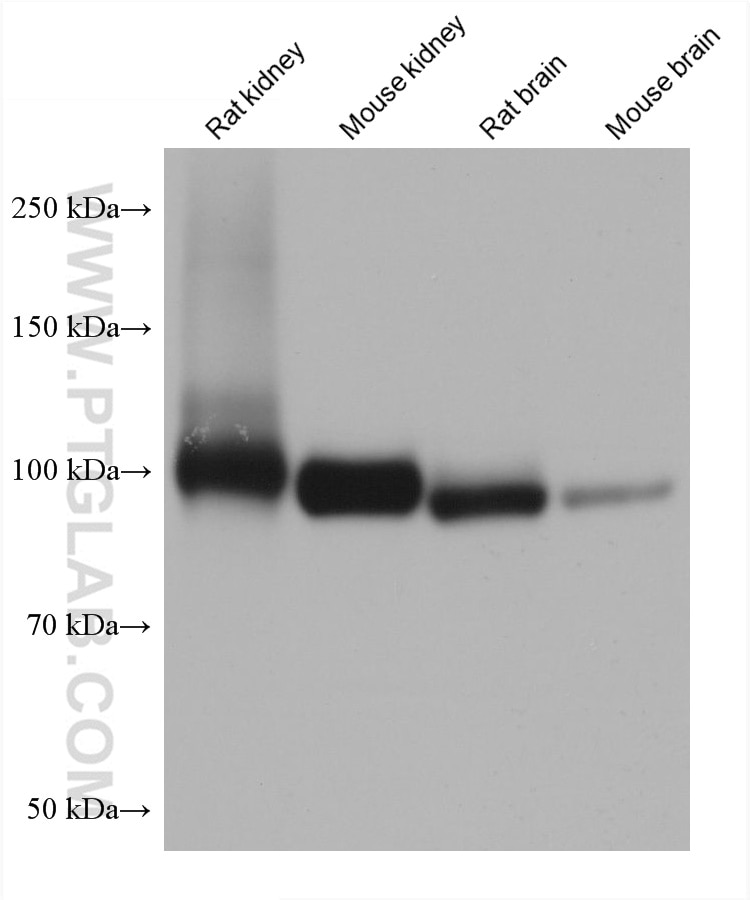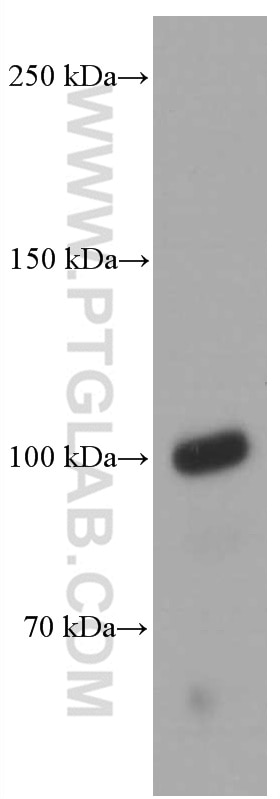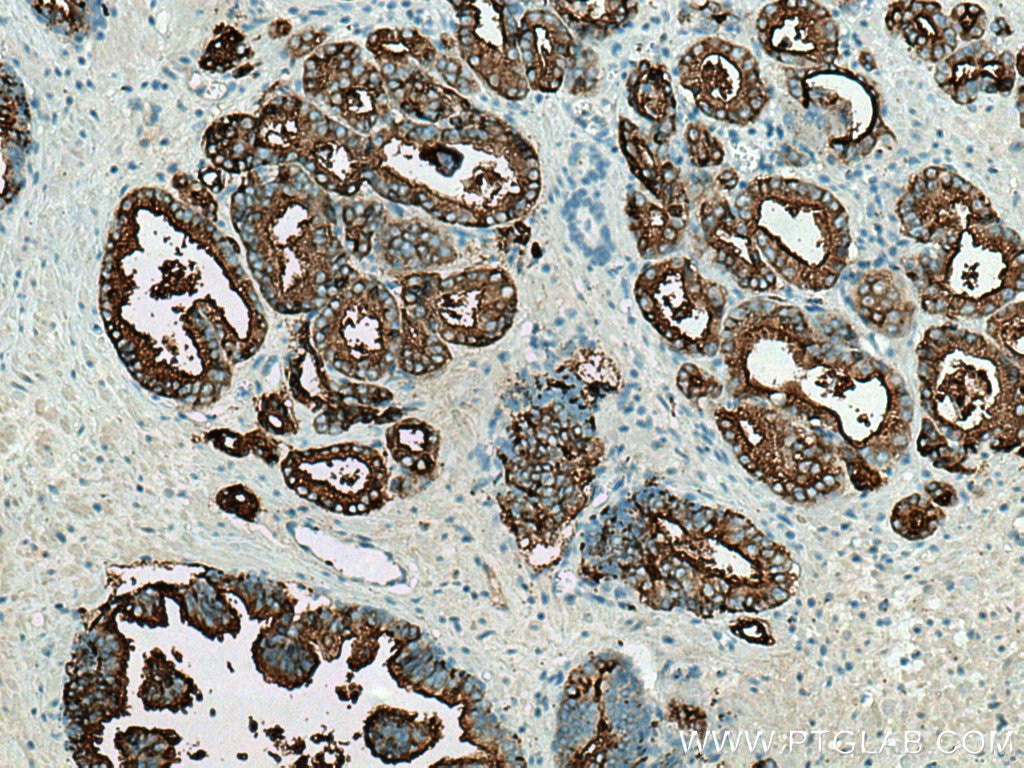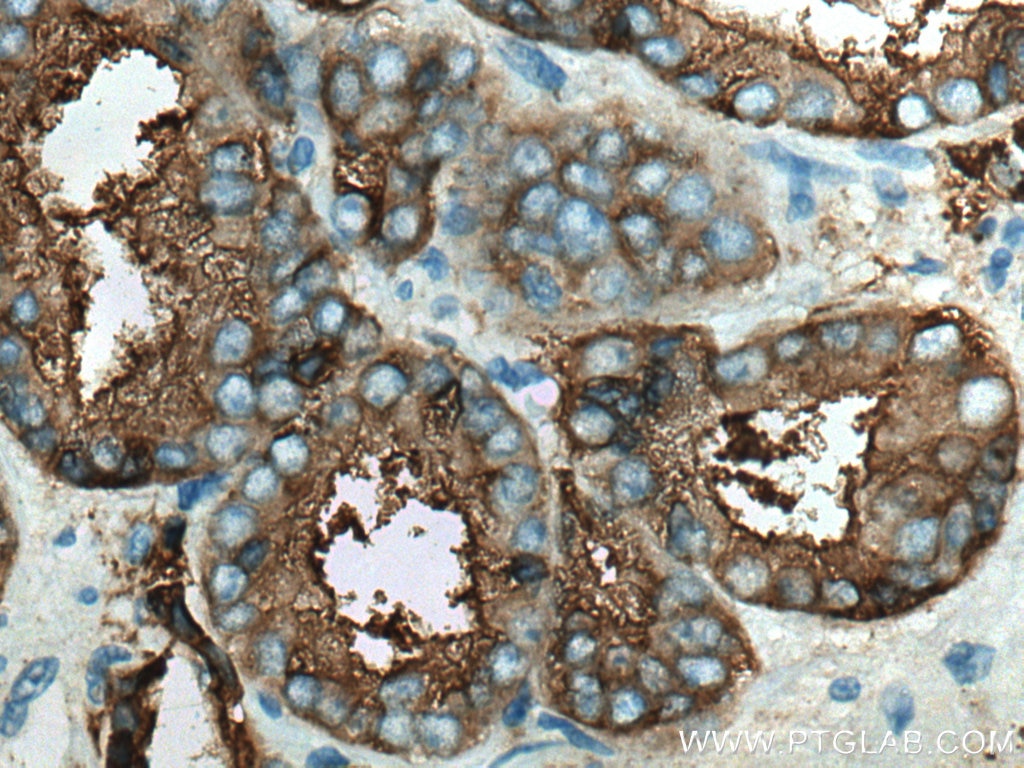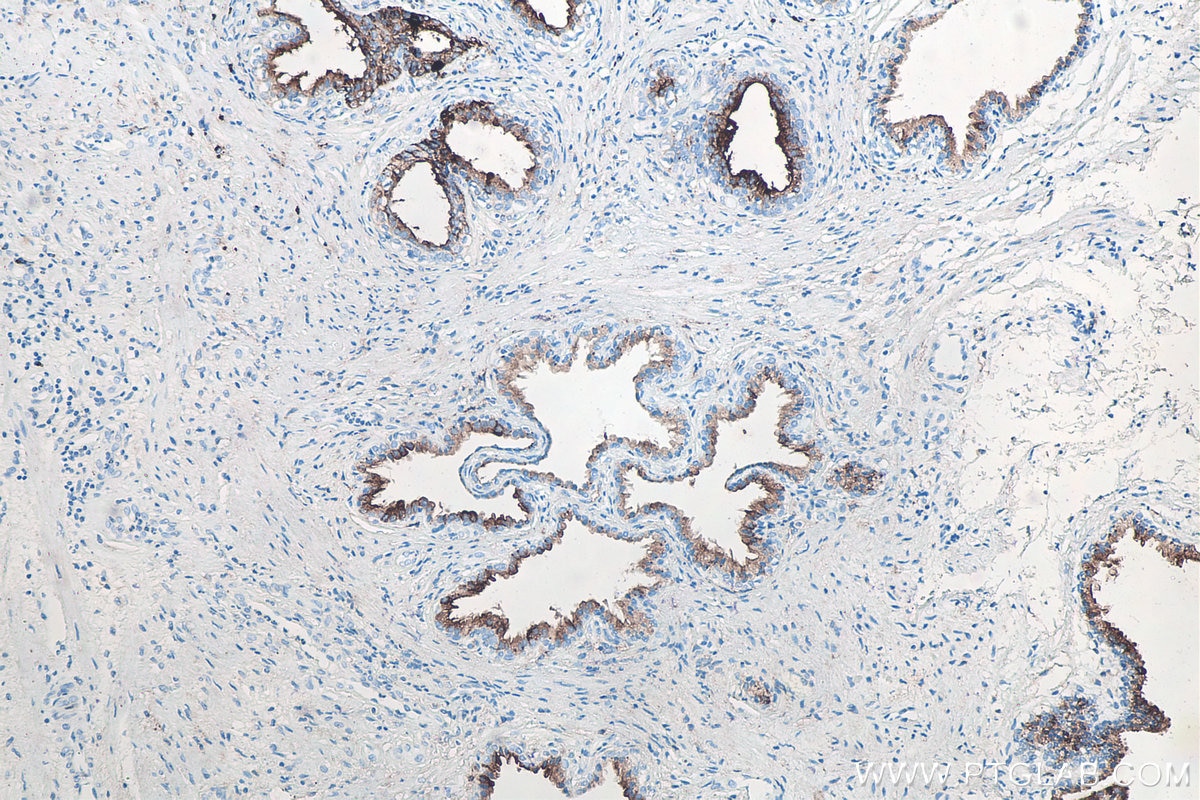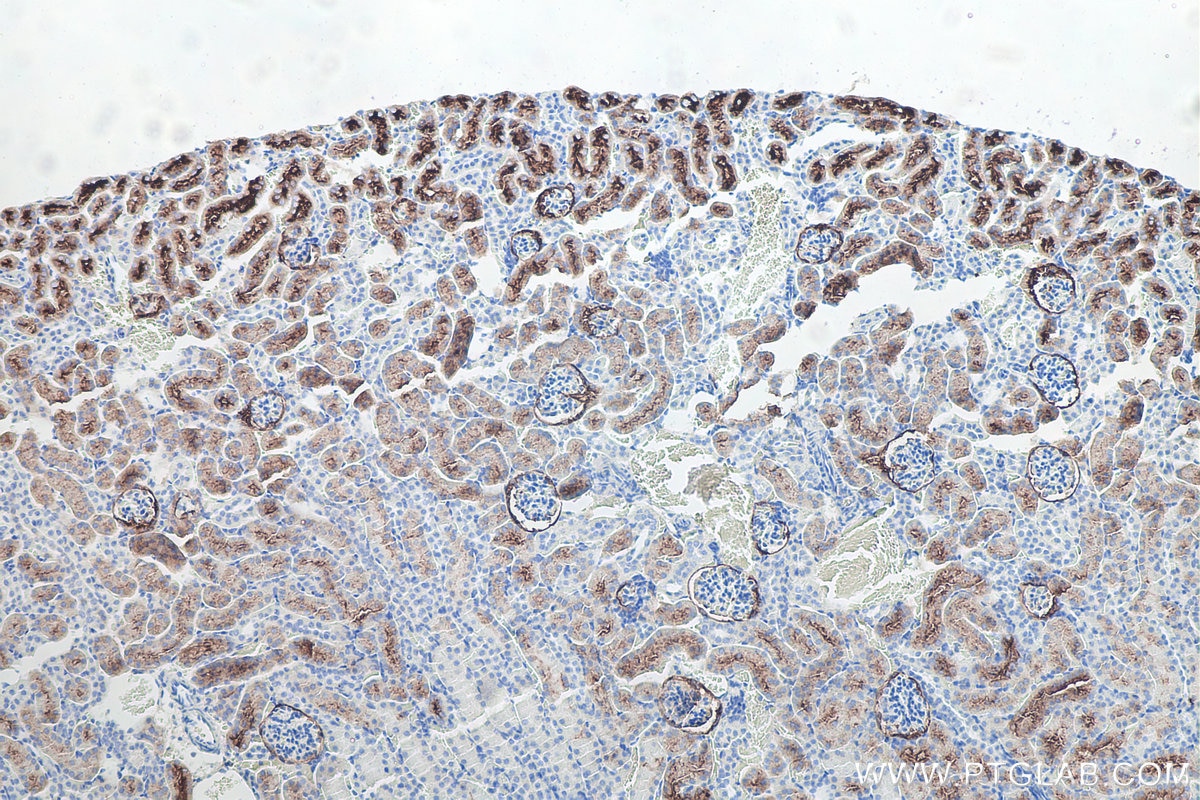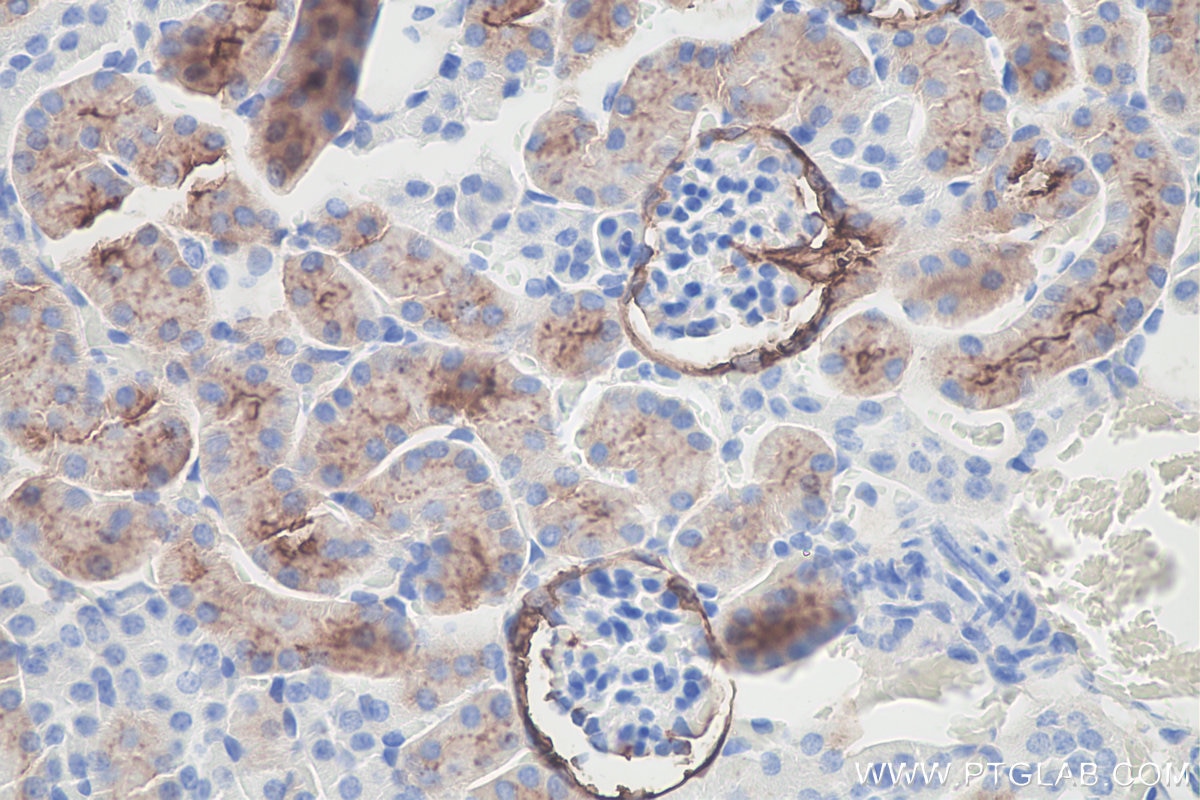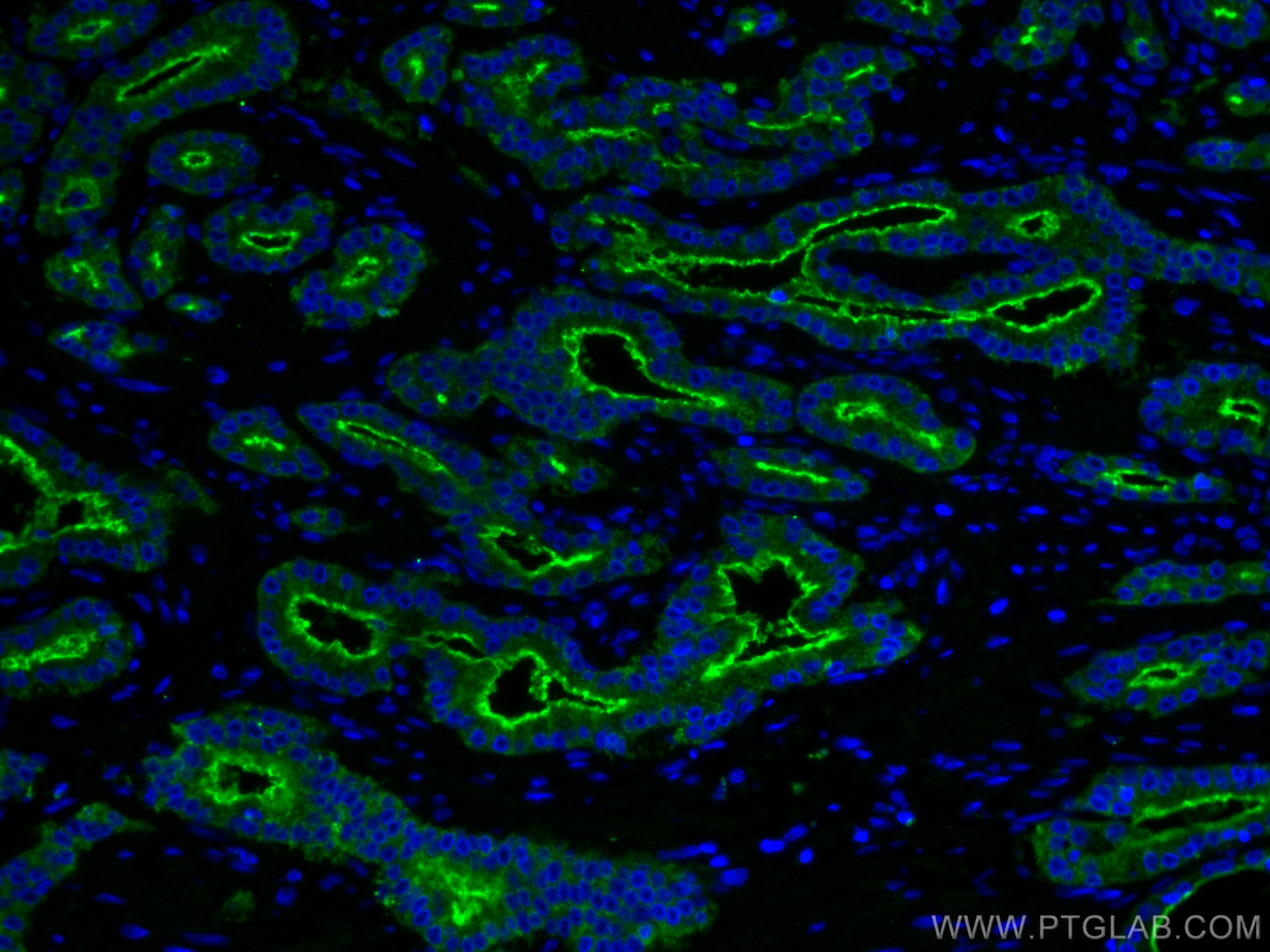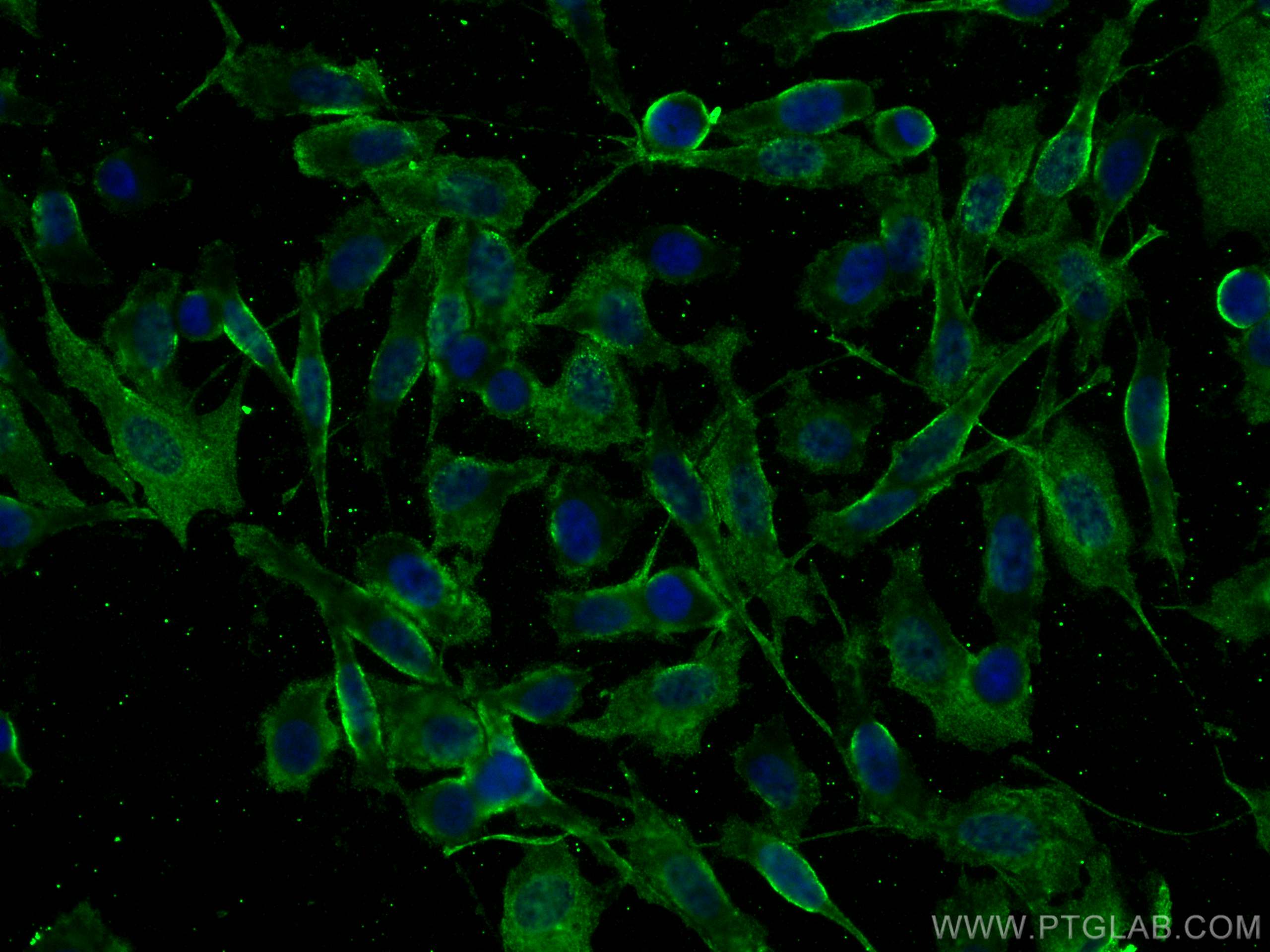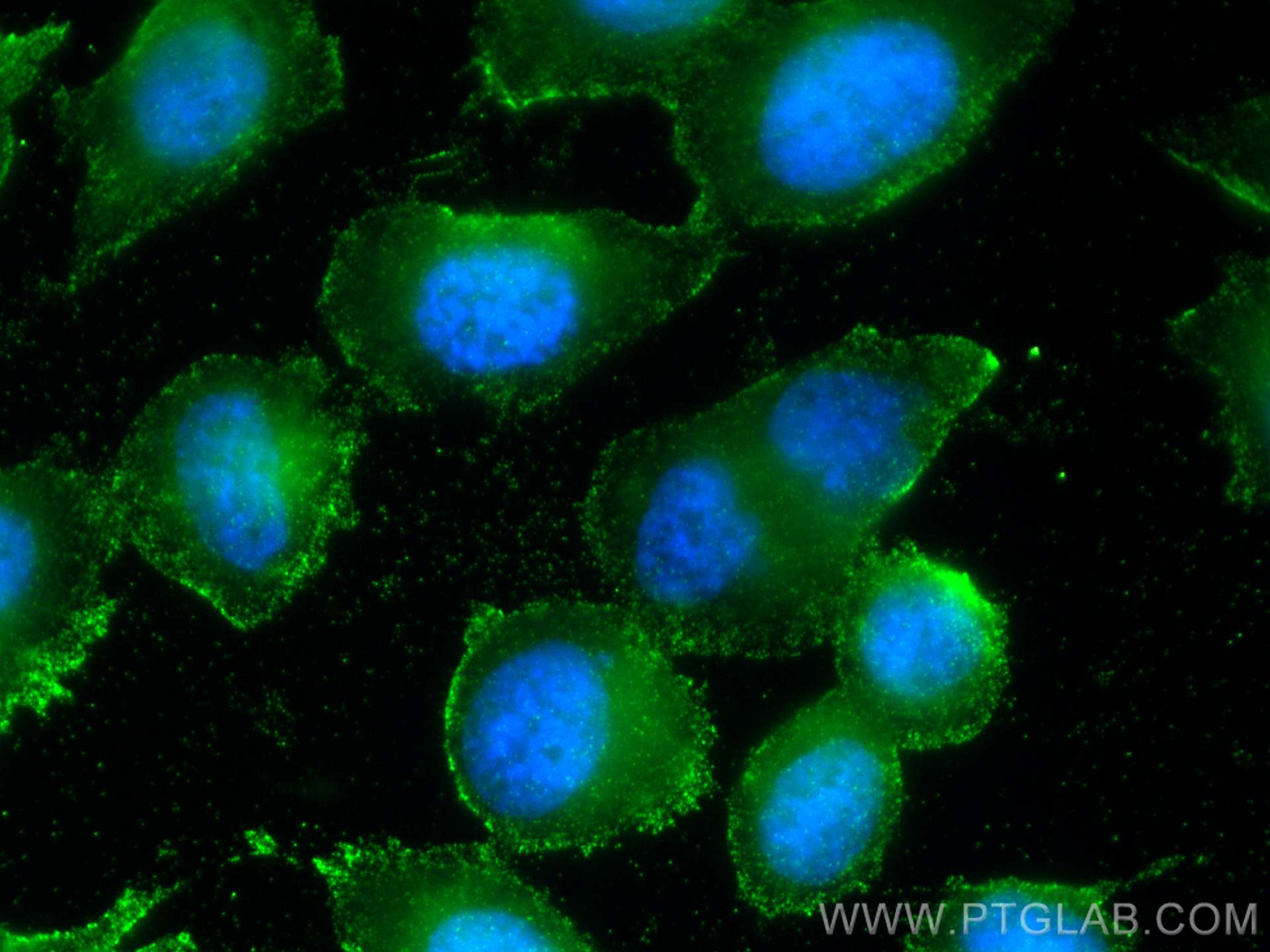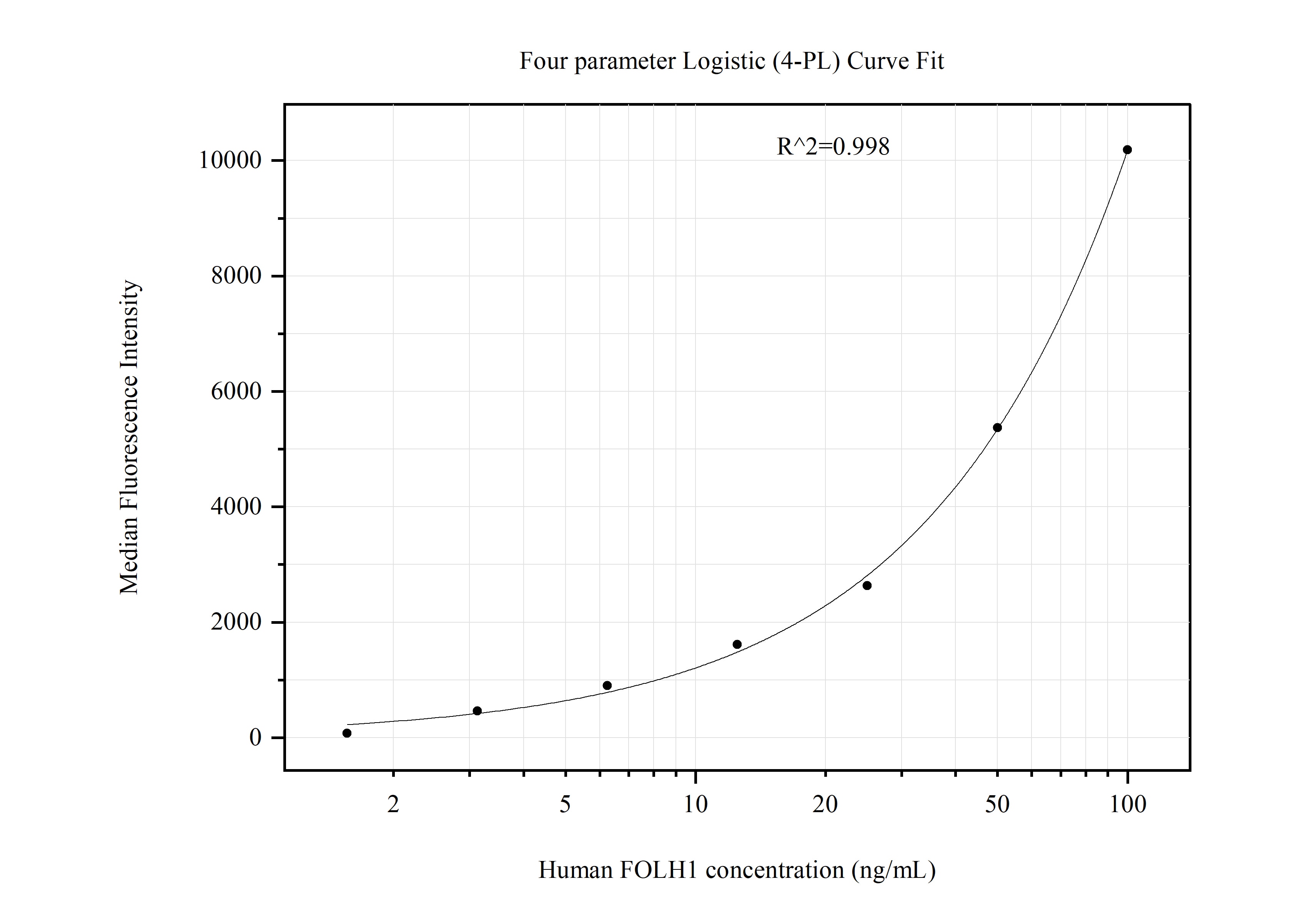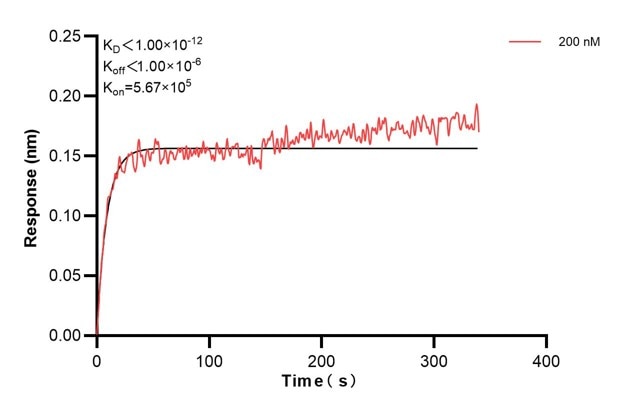Product Information
66678-1-PBS targets PSMA/GCPII as part of a matched antibody pair:
MP51112-1: 66678-2-PBS capture and 66678-1-PBS detection (validated in Cytometric bead array)
Unconjugated mouse monoclonal antibody pair in PBS only (BSA and azide free) storage buffer at a concentration of 1 mg/mL, ready for conjugation.
This conjugation ready format makes antibodies ideal for use in many applications including: ELISAs, multiplex assays requiring matched pairs, mass cytometry, and multiplex imaging applications.Antibody use should be optimized by the end user for each application and assay.
| Tested Reactivity | human, mouse, rat |
| Host / Isotype | Mouse / IgG1 |
| Class | Monoclonal |
| Type | Antibody |
| Immunogen | PSMA/GCPII fusion protein Ag16594 Predict reactive species |
| Full Name | folate hydrolase (prostate-specific membrane antigen) 1 |
| Calculated Molecular Weight | 719 aa, 81 kDa |
| Observed Molecular Weight | 100-120 kDa |
| GenBank Accession Number | BC025672 |
| Gene Symbol | PSMA |
| Gene ID (NCBI) | 2346 |
| RRID | AB_2882032 |
| Conjugate | Unconjugated |
| Form | Liquid |
| Purification Method | Protein A purification |
| UNIPROT ID | Q04609 |
| Storage Buffer | PBS only, pH 7.3. |
| Storage Conditions | Store at -80°C. |
Background Information
PSMA(Prostate-specific membrane antigen) is also named as FOLH1, FOLH, NAALAD1, PSM and belongs to the peptidase M28 family. PSMA is a 100-120 kDa integral transmembrane glycoprotein, considered to be a highly specific marker of the prostate gland, and has successfully been used as a marker of circulating prostatic epithelial cells(PMID:10074909; 15680901). It is involved in conversion of the major neurotransmitter (NAAG) to NAA and free glutamate. It has 8 isoforms produced by alternative splicing.
